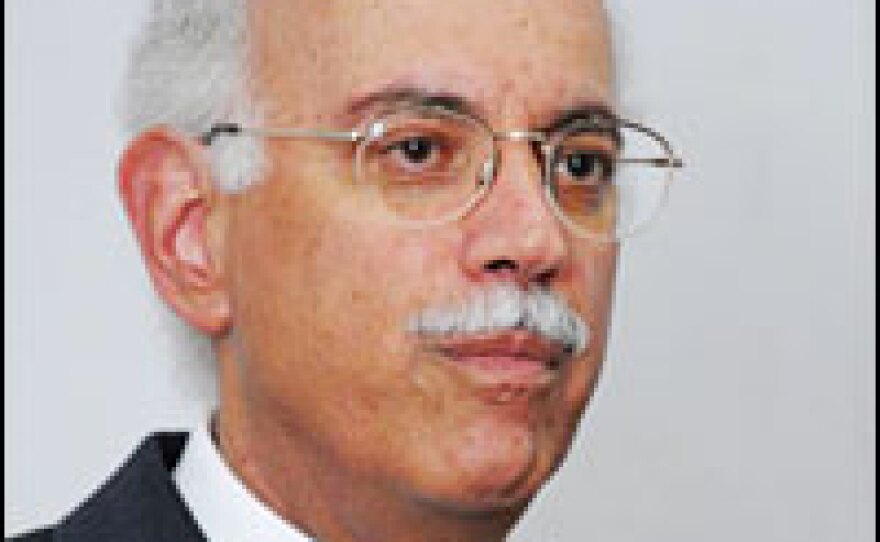
The United Nations Security Council Tuesday unanimously approved measures to send 26,000 peacekeepers to the Sudan to help end Darfur's deadly conflict. It is the world's largest peacekeeping operation and will cost $2 billion in its first year. The African Union and United Nations hope that the mission will help put a stop to the four years of violence in Darfur in which 200,000 have been killed.
Andrew S. Natsios is the president's special envoy to Sudan and a professor at the Edmund A. Walsh School of Foreign Service at Georgetown University. He talks with Alex Cohen about the significance of the resolution's unanimous approval and what it will mean for the Sudan and the United States in the coming months.
Military observers, international police, and civilian police will be deployed in the coming months and will take control by the end of December. According to Natsios, there has been some conflict within the United Nations over the United States' call for the deployment of troops beginning Oct. 1.
"Now that we have this resolution, particularly with the unanimous vote, it will actually be much easier to recruit [troops]," Natsios says. "I think many heads of state have told President Bush and Dr. [Condoleezza] Rice that they are willing to contribute troops, but that they want a really firm, unified world community behind them, and that's what we have right now."
The United States will finance a large part of the peacekeeping mission's budget but will not contribute troops, according to Natsios.
Violence erupted in Darfur in February of 2003. Despite a peace agreement last year, the conflict has continued, according to the United Nations and international observers. The Sudanese government has opposed previous drafts of the current resolution but has now made agreements with the international community.
Natsios said that there will be consequences for the Sudan if it reneges on the U.N. resolution. "The President will propose sanctions to the General Assembly," he said. "We hope though that the Sudanese government will be cooperative, that they will help implement this. I believe it is in their interest to have this [peacekeeping operation] happen, even though they don't see that themselves."
-- Text by Haley Bridger
Copyright 2022 NPR. To see more, visit https://www.npr.org. 9(MDAzMjM2NDYzMDEyMzc1Njk5NjAxNzY3OQ001))





